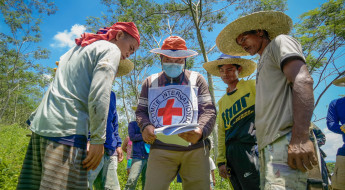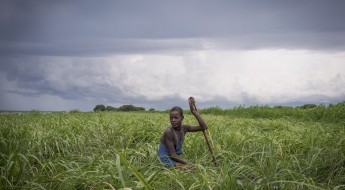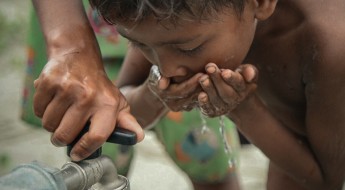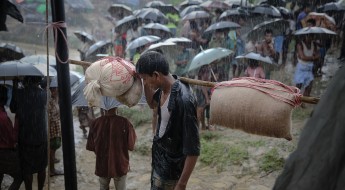Myanmar’s displaced in Cox’s Bazar: Torn between an unsafe homeland and a blurry future
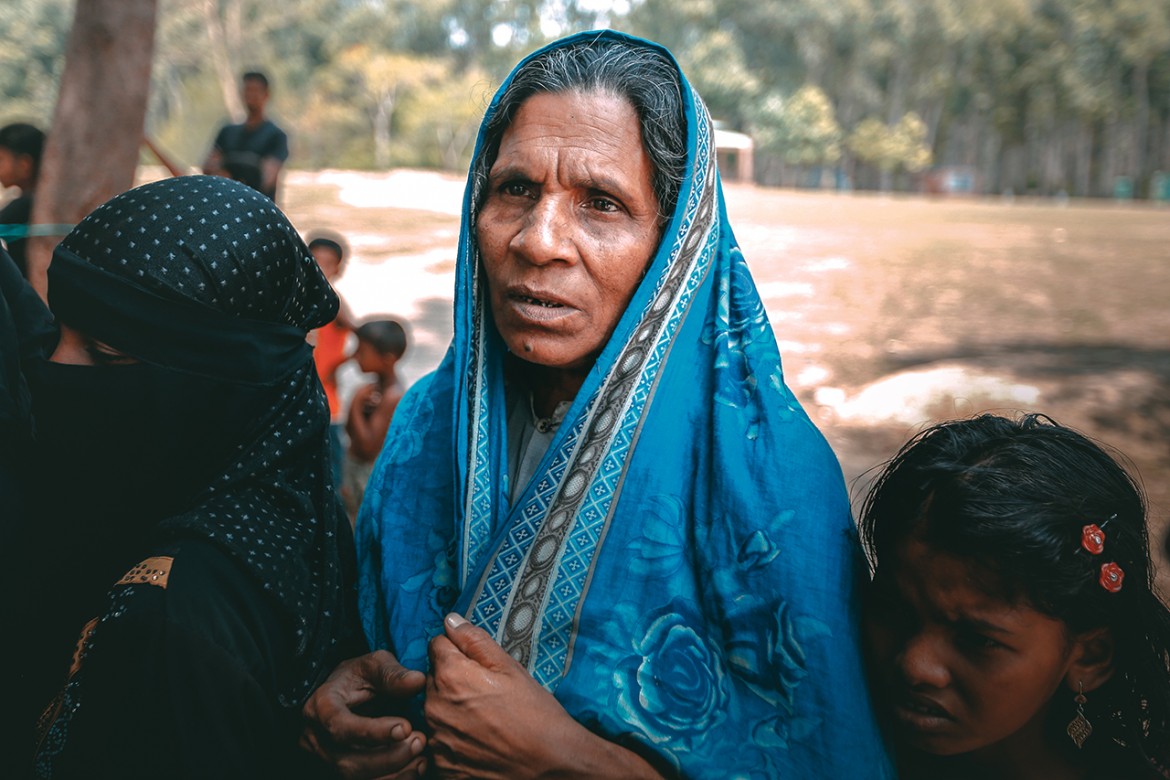 NurjahanI lost my husband during the chaos of violence back home in Myanmar. It’s only my son and me now, and life has been tough. My health is so poor that I am out of breath all the time and my stomach keeps hurting. But there is barely enough money for anything. Rice and other items provided by aid are the only things we have access to. The rains are expected to hit this area soon. I’m scared this monsoon will flood our house like last year.CC BY-NC-ND / ICRC / Sheikh Mehedi Morshed
NurjahanI lost my husband during the chaos of violence back home in Myanmar. It’s only my son and me now, and life has been tough. My health is so poor that I am out of breath all the time and my stomach keeps hurting. But there is barely enough money for anything. Rice and other items provided by aid are the only things we have access to. The rains are expected to hit this area soon. I’m scared this monsoon will flood our house like last year.CC BY-NC-ND / ICRC / Sheikh Mehedi Morshed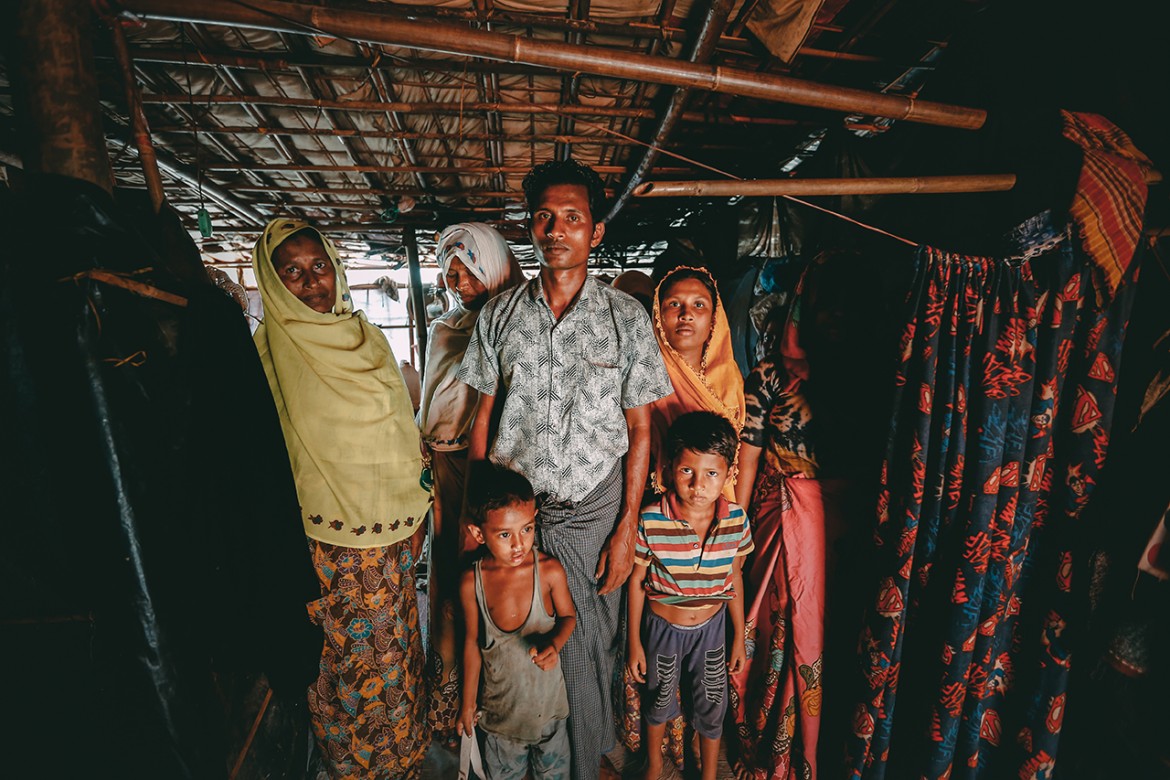 JubaerOur houses are not made to withstand the rains. I am a “majhi” or community leader, and have a huge responsibility. I need to be very vigilant to make sure that the community members have received enough food and other services to survive.CC BY-NC-ND / ICRC / Sheikh Mehedi Morshed
JubaerOur houses are not made to withstand the rains. I am a “majhi” or community leader, and have a huge responsibility. I need to be very vigilant to make sure that the community members have received enough food and other services to survive.CC BY-NC-ND / ICRC / Sheikh Mehedi Morshed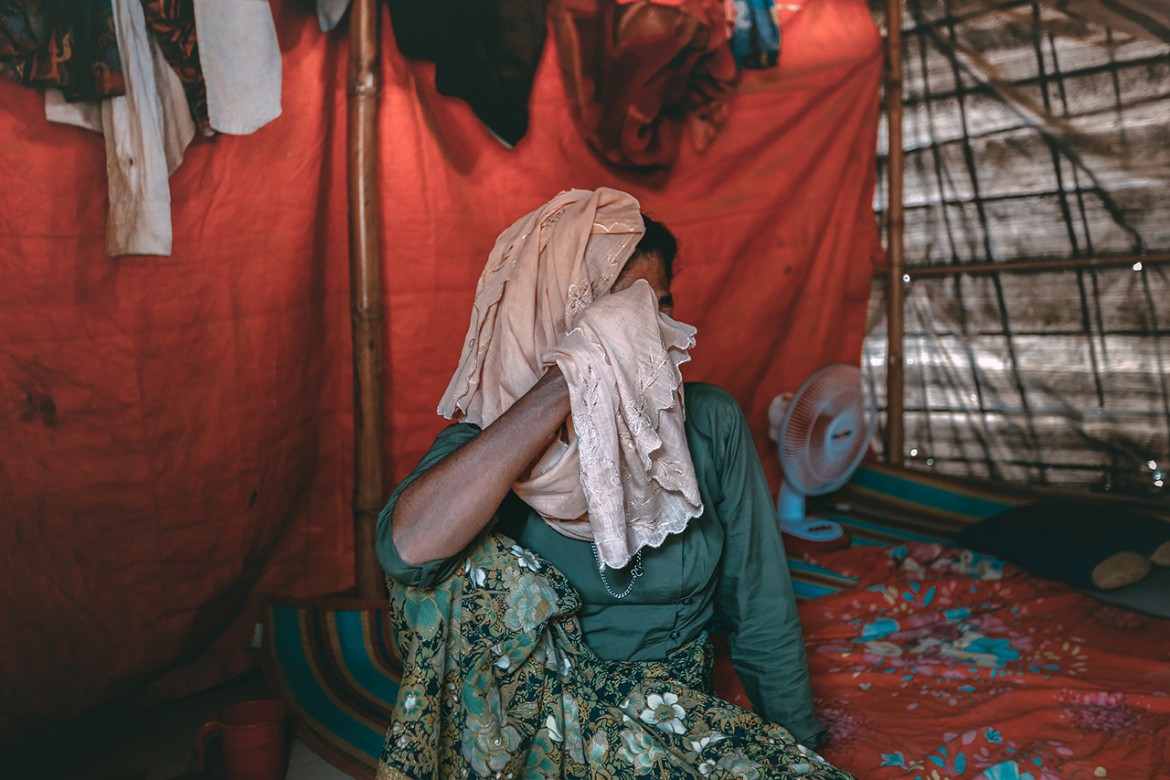 SetaraI had a home once. Now, I have nothing. Rain, storm or muck, I have to stay here. My husband is old and weak and I’ve heard that my eldest son is in jail. We have no source of income. We are a family of nine, you can’t even imagine how we’re surviving here. But, there is no other option.CC BY-NC-ND / ICRC / Sheikh Mehedi Morshed
SetaraI had a home once. Now, I have nothing. Rain, storm or muck, I have to stay here. My husband is old and weak and I’ve heard that my eldest son is in jail. We have no source of income. We are a family of nine, you can’t even imagine how we’re surviving here. But, there is no other option.CC BY-NC-ND / ICRC / Sheikh Mehedi Morshed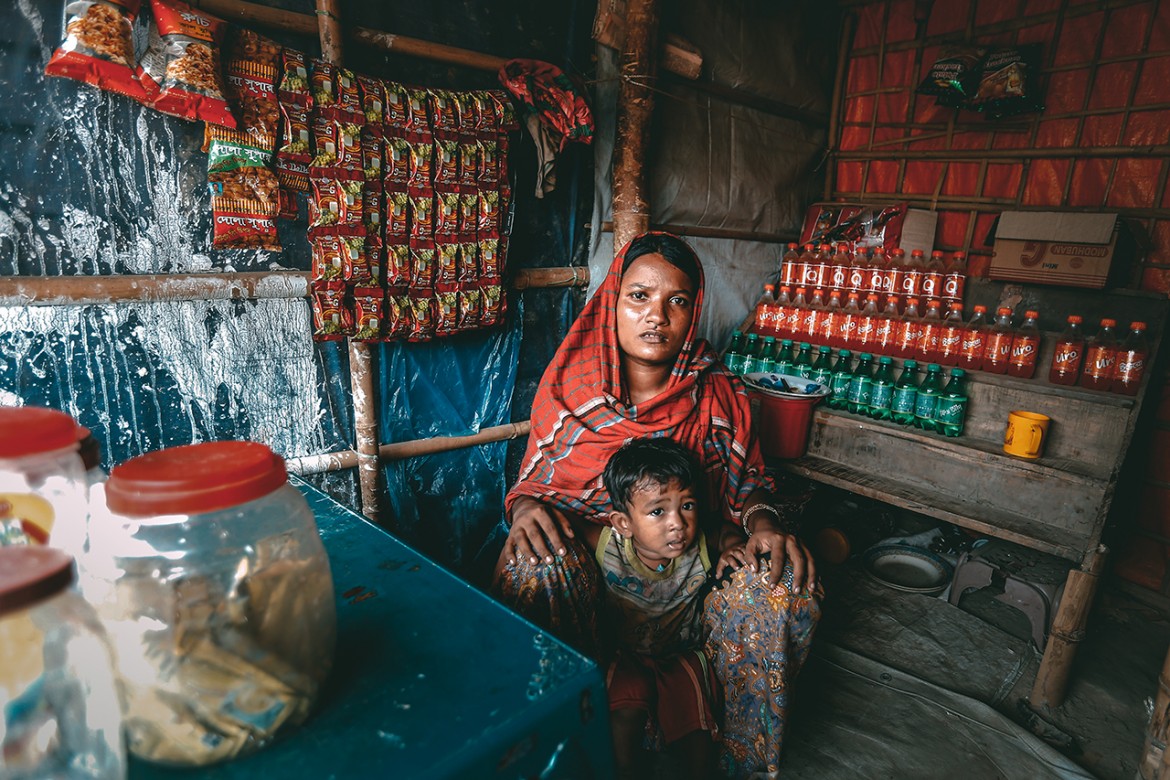 Nur KayatHere, I look after my brother-in-law’s cigarette store that is frequented by male customers. I don’t feel comfortable selling cigarettes and beetle leaves but our survival depends on it because my husband can’t work due to a mental illness. It’s tough to work and look after my baby. But I don’t know if I want to go back, life is the same here as it was there.CC BY-NC-ND / ICRC / Sheikh Mehedi Morshed
Nur KayatHere, I look after my brother-in-law’s cigarette store that is frequented by male customers. I don’t feel comfortable selling cigarettes and beetle leaves but our survival depends on it because my husband can’t work due to a mental illness. It’s tough to work and look after my baby. But I don’t know if I want to go back, life is the same here as it was there.CC BY-NC-ND / ICRC / Sheikh Mehedi Morshed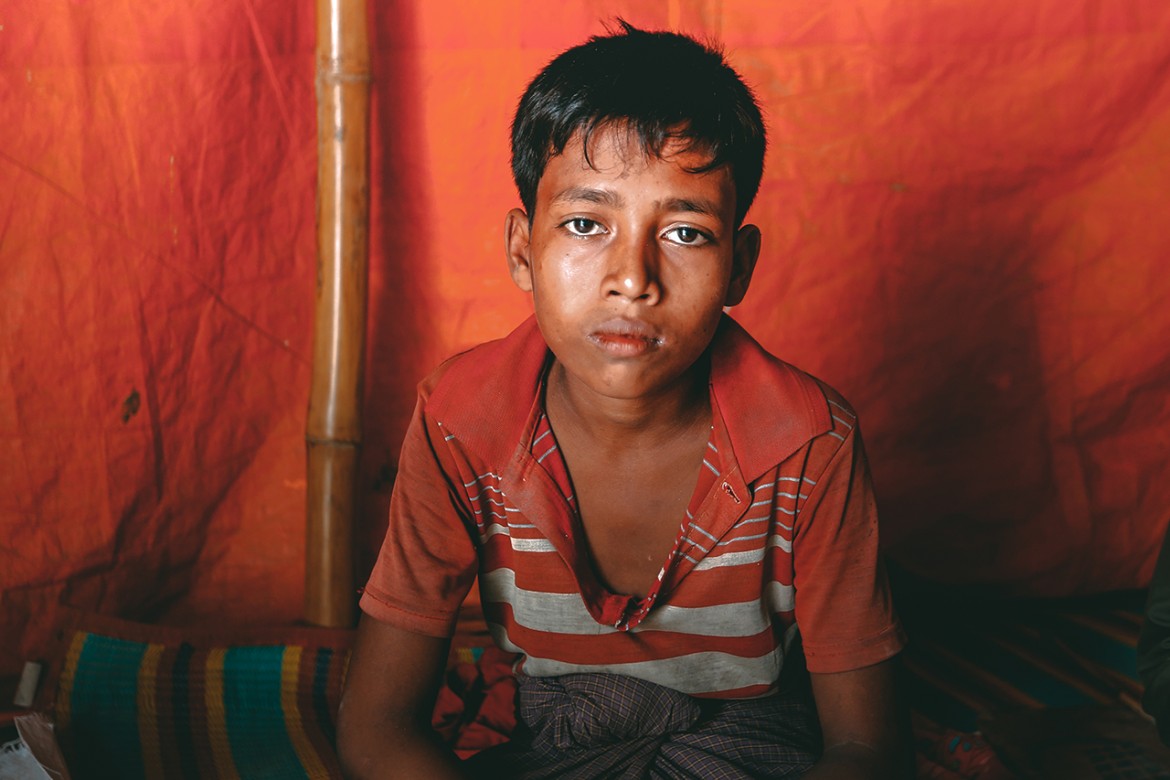 Mohammad ShifayetIt was a carefree life. I used to go to school and had friends to play with. But everything changed when we moved here. I have to help my family. On food distribution days, I go along with my father as he is old and can’t manage everything on his own. I fetch water every day, standing in the queue for hours just to get two pails.CC BY-NC-ND / ICRC / Sheikh Mehedi Morshed
Mohammad ShifayetIt was a carefree life. I used to go to school and had friends to play with. But everything changed when we moved here. I have to help my family. On food distribution days, I go along with my father as he is old and can’t manage everything on his own. I fetch water every day, standing in the queue for hours just to get two pails.CC BY-NC-ND / ICRC / Sheikh Mehedi Morshed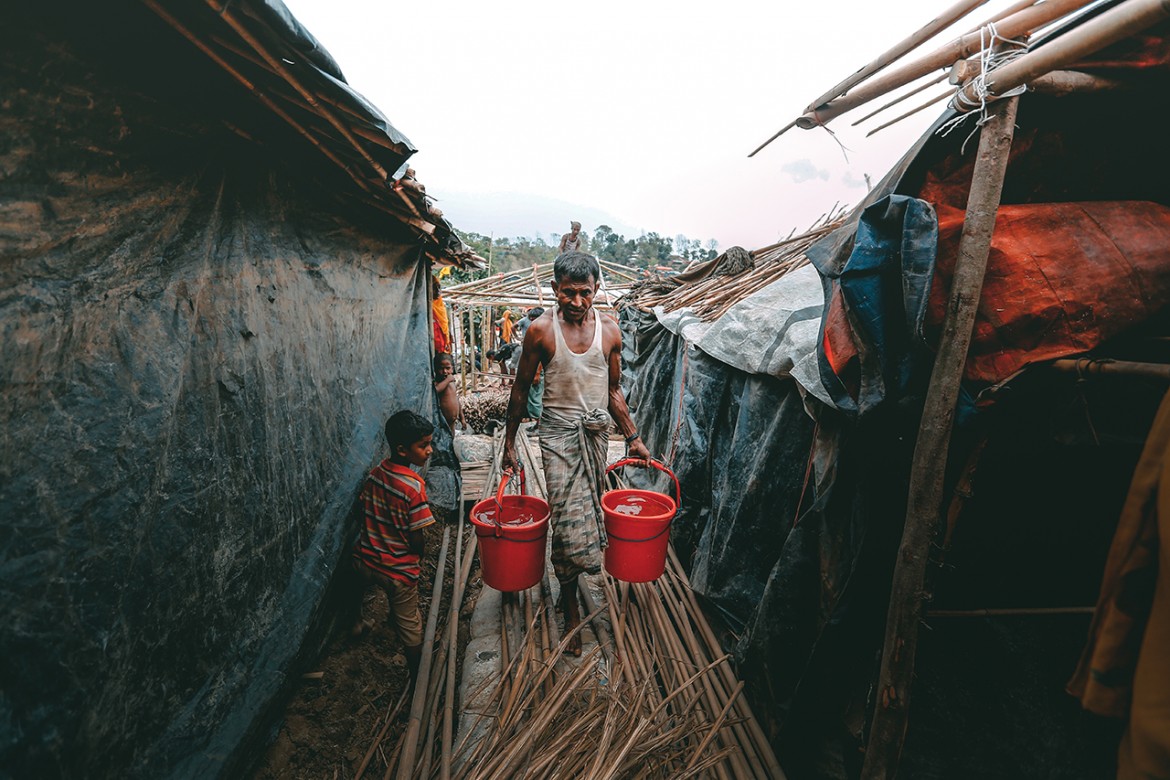 Muhammad AnwarI feel imprisoned here, but this is the only safe place for us. I came to this camp eight months ago, when it had only a few families. And then it swelled to a huge settlement in front of my eyes. Getting water is a daily struggle. It’s tiresome, but now I’m used to the daily grind. I’ll return home when it’s safe.CC BY-NC-ND / ICRC / Sheikh Mehedi Morshed
Muhammad AnwarI feel imprisoned here, but this is the only safe place for us. I came to this camp eight months ago, when it had only a few families. And then it swelled to a huge settlement in front of my eyes. Getting water is a daily struggle. It’s tiresome, but now I’m used to the daily grind. I’ll return home when it’s safe.CC BY-NC-ND / ICRC / Sheikh Mehedi Morshed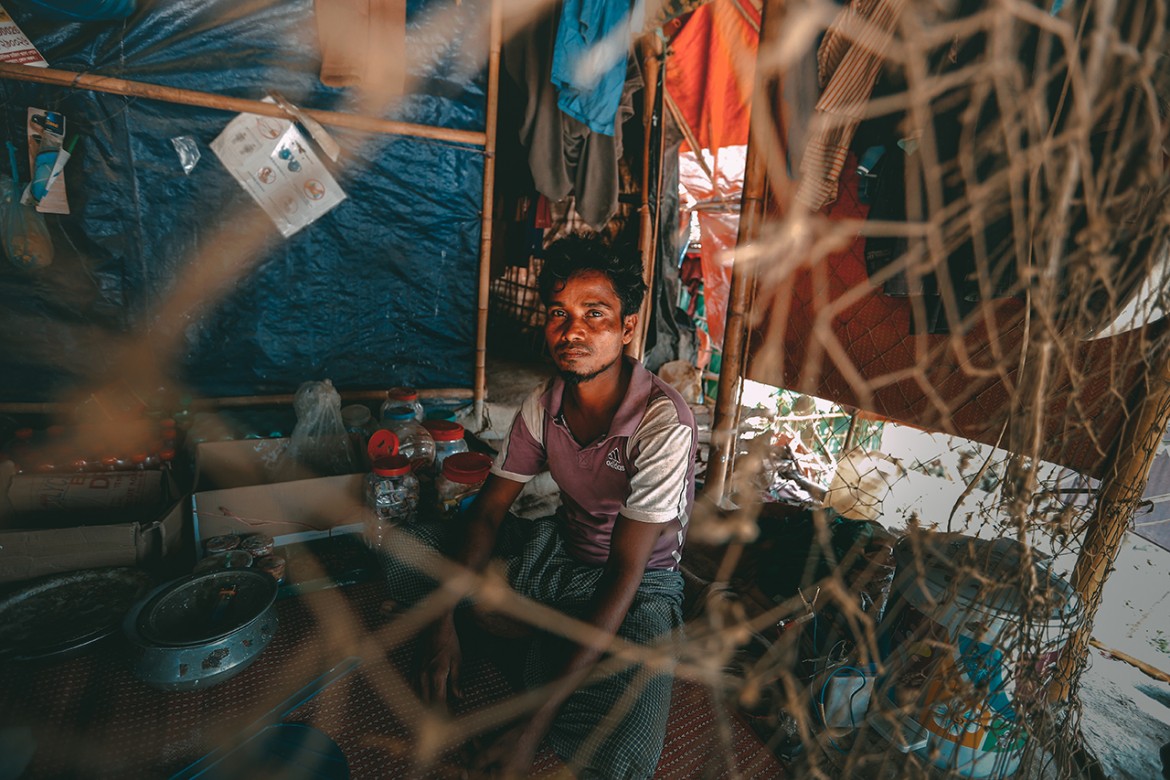 Mohammad HossainWe’re a family of nine and the journey here was long and treacherous. It was so overwhelming when a Bangladeshi family provided us with a roof over our heads. I had a successful business but the violence took away everything from me. My seven-year-old doesn’t understand this crisis and I feel helpless when she asks for a good meal.CC BY-NC-ND / ICRC / Sheikh Mehedi Morshed
Mohammad HossainWe’re a family of nine and the journey here was long and treacherous. It was so overwhelming when a Bangladeshi family provided us with a roof over our heads. I had a successful business but the violence took away everything from me. My seven-year-old doesn’t understand this crisis and I feel helpless when she asks for a good meal.CC BY-NC-ND / ICRC / Sheikh Mehedi Morshed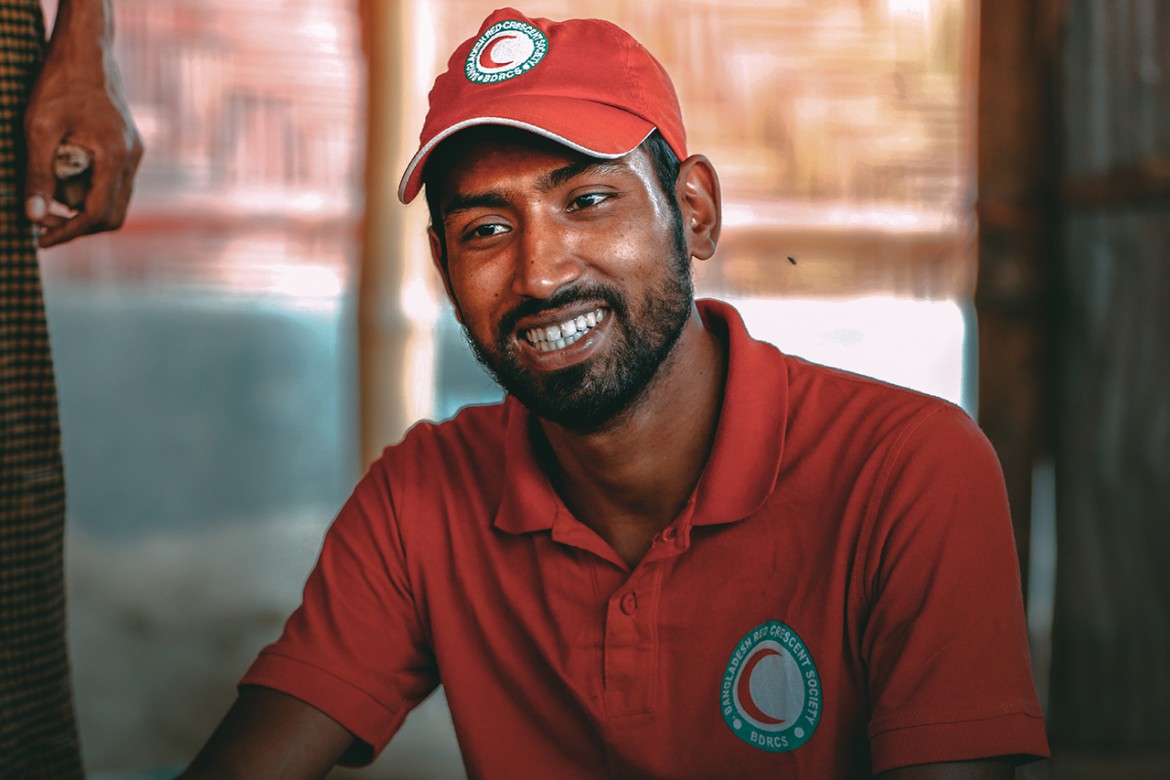 Saikat - Red Crescent volunteerI came across a three-year-old boy in the Bagghona camp who was lost. I picked him up and we walked around for two hours, going door to door, looking for his family. Someone guided me to his house but the anxious mother had gone out to look for her little boy. I waited for the mother to return and only after the little one identified her did I hand him over to her. We face challenges every day but the joy that people feel when they are reunited keeps me going.CC BY-NC-ND / ICRC / Sheikh Mehedi Morshed
Saikat - Red Crescent volunteerI came across a three-year-old boy in the Bagghona camp who was lost. I picked him up and we walked around for two hours, going door to door, looking for his family. Someone guided me to his house but the anxious mother had gone out to look for her little boy. I waited for the mother to return and only after the little one identified her did I hand him over to her. We face challenges every day but the joy that people feel when they are reunited keeps me going.CC BY-NC-ND / ICRC / Sheikh Mehedi Morshed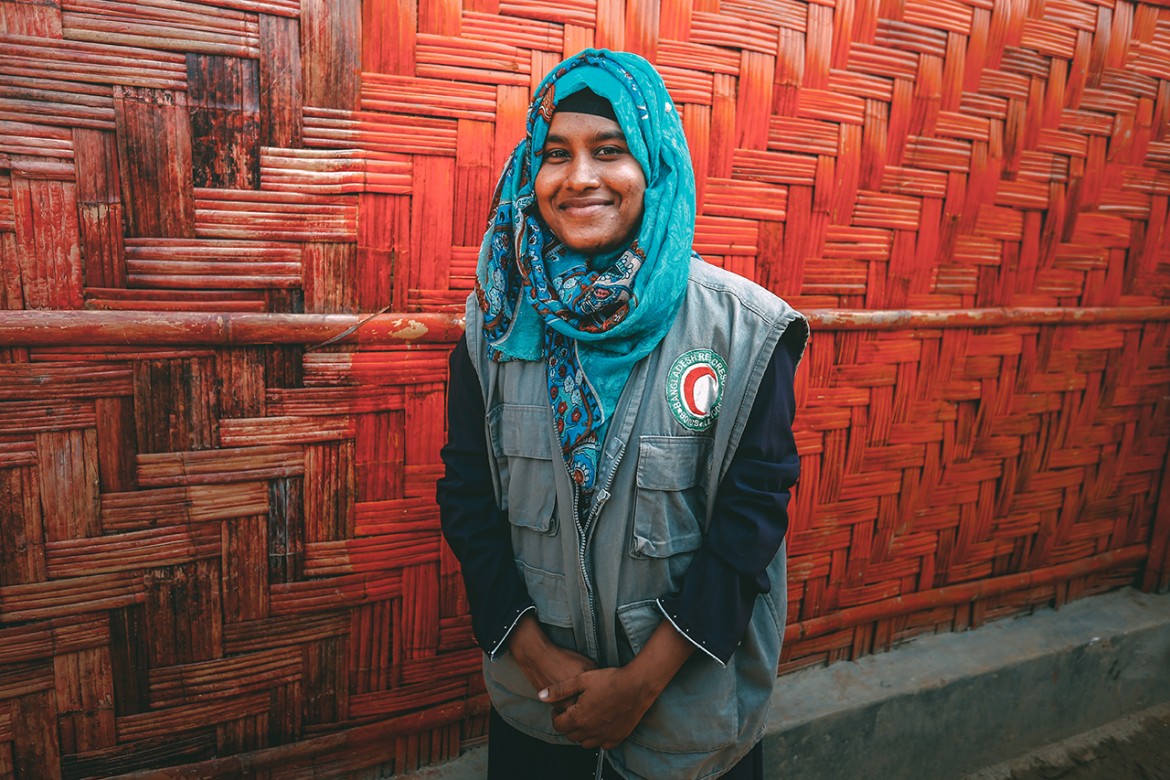 Hasmat - Red Crescent volunteerWhile providing the phone-call service to families in Kutupalong camp, I came across a young woman who got separated from her husband. As soon as they were connected, she broke into endless tears of relief. I will never forget that moment. It’s not easy as a woman volunteer. I get judged and people tend to be cynical about my capacity. But they see my work and finally appreciate it.CC BY-NC-ND / ICRC / Sheikh Mehedi Morshed
Hasmat - Red Crescent volunteerWhile providing the phone-call service to families in Kutupalong camp, I came across a young woman who got separated from her husband. As soon as they were connected, she broke into endless tears of relief. I will never forget that moment. It’s not easy as a woman volunteer. I get judged and people tend to be cynical about my capacity. But they see my work and finally appreciate it.CC BY-NC-ND / ICRC / Sheikh Mehedi Morshed
Ten months into the Rakhine crisis, hundreds and thousands of displaced people from Myanmar continue to live in teeming makeshift settlements in Cox's Bazar. It's the same tale everywhere – families were forced to leave a place they called home to flee the violence and save their lives. The journey to neighbouring Bangladesh was risky and full of difficulties. But that was their only safe option.
The need for aid remains overwhelming in the camps of Cox's Bazar. Adding to people's worries is the monsoon season that threatens to bring in floods and landslides. Though the basic needs of displaced families are being met by the authorities and aid agencies working on the ground such as the Bangladesh Red Crescent Society, it's the uncertain future that haunts them the most.

